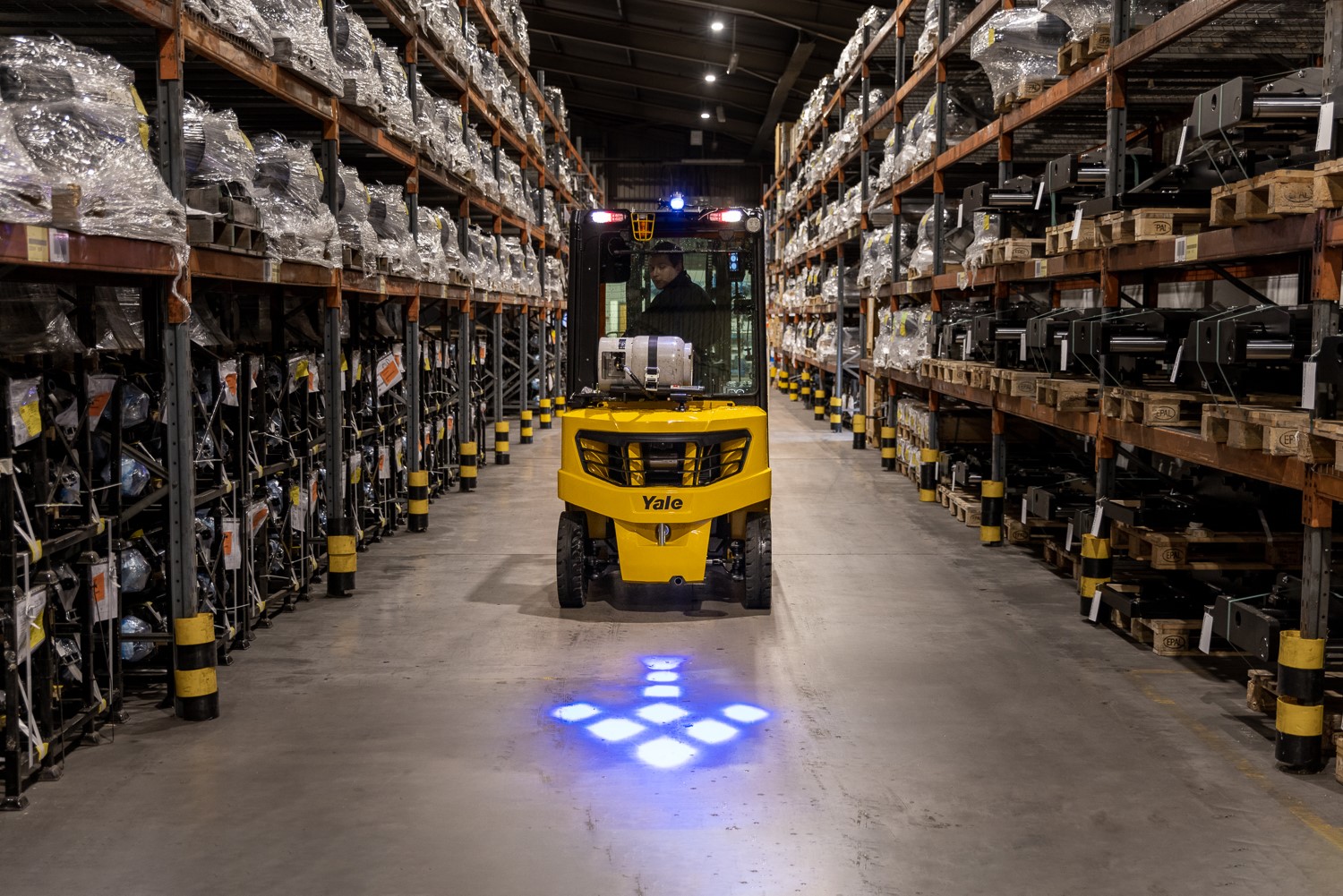Travis Perkins Group, distributor of building materials, has partnered with University of Salford Manchester’s specialist acoustics testing team to conduct an evidence-based study into the development of electric forklift truck sound alerts.
Keeping people safe and well is the Group’s number one priority, and this study was commissioned by the business to address colleague concern about the quietness of an electric forklift truck compared to a traditional diesel engine, and the potential safety risk this could pose. It follows the announcement earlier this year that the Group is accelerating its Science Based Targets Initiative approved decarbonisation plan, by switching out up to1100 diesel forklift trucks with electrics to reduce scope 1 carbon emissions by up to 6,600 tonnes per annum.
Similarly to the warning sounds that have been incorporated into electric vehicles to warn pedestrians and other vulnerable road users of their presence, Travis Perkins plc and the Acoustic Centre for Excellence at University of Salford will be working together to develop a sound alert for forward-moving electric forklift trucks to alert customers and colleagues.
“There should always be a safe distance between people and working machinery, but exclusion zones work best if people are alerted as they approach any high-risk areas. Given the pioneering nature of this decarbonisation project, research is required to ensure we develop alerts that work well as effective warning systems for both our operators, and the colleagues and customers who may come into contact with our exclusion zones,” explained HSE & Fleet Director at Travis Perkins plc, Richard Byrne.
The Salford acoustic team was selected on the basis of their world renowned reputation and the expertise they have developed on the back of a similar electric scooter study. With support from Briggs Equipment, which is the forklift provider to Travis Perkins plc, this research will involve the Group’s businesses, including forklift truck operators and colleagues from Travis Perkins, BSS and CCF, to ensure the solution will be of optimum benefit for everyone.
Following successful research on alerting sounds for electric micro-mobility, the team at Salford led by Dr Antonio Torija Martinez who is Reader in Acoustical Engineering at the University, who is assisted by Postdoctoral Research Fellow Dr Tim Walton, will use innovative virtual reality (VR) technology alongside measurements from an anechoic chamber to help develop the most effective sound to make the electric forklifts as safe as they can be.
Dr Antonio Torija Martinez said: “This work aligns with our strategy to perform excellent research to enable the wider adoption of electric vehicles, and contribute to establishing Salford as a Centre of Excellence on acoustics for e-mobility”.
Dr Tim Walton added: “We will be conducting a series of VR experiments to test some candidate alert sounds from both the perspective of customers of Travis Perkins, and also from the perspective of the machine operators. One of the key things we will be looking at is to balance detectability and operator acceptability. Using virtual reality to create immersive and realistic scenarios in a safe and controlled laboratory environment will allow us to achieve robust results. By working closely with Travis Perkins, we can ensure that the sound we develop is the best fit for their needs.”
“We are committed to lead on decarbonisation, and as an early adopter of electric forklifts this requirement for sound alerts was not something anyone in the industry had foreseen. This study is therefore a really important contribution to enhance safety in that it will solve a problem that applies to so many in our industry,” Richard Byrne concluded.
Once the outcome of this study is available later this year, there is potential for the findings to be shared with the industry to promote best practice, and for the electric forklift truck sound alerts to be applied as a new standard nationally and internationally.





